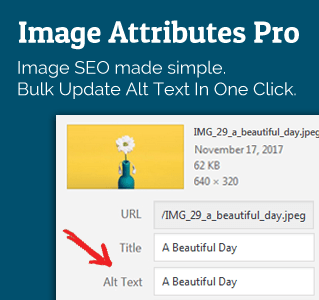Have as few of these as possible. Try to keep your finances clean and de-cluttered right from the start.
Let’s Talk About Bank Accounts First
- A maximum of two bank accounts is ideal for most people.
- If you are self-employed, then you might need more to take advantage of specific features, but more accounts will be a headache during tax season! Tread carefully.
- RBI publishes a list of banks that are simply too-big-and-too-important to fail called Domestic Systemically Important Banks (D-SIBs). SBI, ICICI Bank and HDFC Bank are in the list.
- If everything is the same, open in these bank accounts where possible. These banks would be the safest for fixed deposits above 5,00,000 (5 lakh).
- RBI insures FD’s up to 5 lakh, so you do not have to worry about losing your principal if the worst happens and the bank liquidates.
- Pro tip: RBI’s 5 lakh insurance limit is for “deposits held in the same capacity and same right“. Which means if you have 5 lakh under your name and another 5 lakh invested jointly with your wife, these are two different “capacity and right“. So you are insured for 10 lakh now! (Refer FAQ 10 here.)
- Back in the day (even when I started), proximity to the bank was a criteria when choosing a bank. These days everything can be done online and you might need to visit the branch only to open the account (if that!) and close it.
- The account you plan to use for day to day expenses can be in any RBI approved bank.
- Resist the urge to open a new bank account for silly reasons like reward points and seasonal offers.
- When you start a job, if they offer a salary account, take advantage of that. Salary accounts usually have discounted fees and free debit cards. Be careful and read the documents that they ask you to sign, even if you create inconvenience to the group. Some sleazy sales people will sign you up for insurance and debit them from your salary.
- If you have accounts that you do not use, close them.
- Avoid smaller banks and cooperative banks. They might offer higher fixed deposit interest, but risk is also higher. Use equity to take risk, not a debt investment.
Managing Money Between Your Bank Accounts
Here is some advice @TheAnand has for you.
I would recommend having two accounts as well with one account being your ‘salary account’ from which you will transfer money beyond your monthly expense to the ‘savings account’. Salary account can be connected to gpay, have a debit card, etc. and it would have maybe a max of 5k-10k at any given point.
The savings account should not have an app or a debit card. The savings account would then be used to make automated investments, rent payments,etc. This account should not be holding more than 25k by the end of the month. Surplus money beyond these should be parked either in a FD or a short term liquid mutual fund to earn interest/save tax and to be kept safe from “impulsive purchases” and hacks.
This is more or less how I handle it too. I have a bank account that I keep for all expenses. Debit card and UPI are linked here. This is the only account from which taking out money is easy.
Only difference in my case is that money is never credited to my expense account and all income comes into a dedicated income account. Since I am self-employed, my monthly income is not credited in one go like a salary. Having a dedicated income account helps me keep track of income and is useful during tax season. I “recharge” my expense account when it is almost empty.
Debit Cards
Debit cards typically come with an annual maintenance fees (AMC). They used to be really cheap, but now some of them have credit card like AMC’s with no attractive benefit.
Let’s talk about debit cards.
- You only need one! If your salary account offers free debit card, keep it.
- When you open a bank account you can opt for no debit card. Don’t let them tell you otherwise. The application form will have a choice and no bank should tell you that a debit card is mandatory. You can go back and apply for a new debit card any time if you need it in the future.
- With UPI apps, any bank account can be used for payment even if you do not have it’s debit card. UPI apps are accepted widely in India.
- However you still need a debit card to take out cash. And no matter how cashless we try to be, you will need to take out cash at some point.
- Look out for card issuance fees and annual maintenance fees.
- VISA card is what I use. MasterCard should also work globally. Rupay cards, Maestro cards etc. are not accepted everywhere, so avoid them.
Credit Cards
Personally I prefer to stay debt free at all times even though I have the financial discipline to pay credit cards on time. My advice is to avoid credit cards.
If you are sceptical, wait until you need a credit card for the first time and then get one.
Credit cards used to be big deal before debit cards were widely accepted online. Now there is no difference except credit cards typically have higher annual fees. All my businesses are online and I never needed one.
If you are an impulsive shopper, never ever get a credit card please.
Reward Points And Lounge Access
These are silly reasons to get a specific card. If you have them, use them by all means. Trying to “maximise” your earnings by saving up reward points is short term thinking. I have them too.
There can be exceptions. For example, if you regularly purchase things for your business that has the possibility to generate massive reward points, then maybe. If you fly regularly and can take advantage of the lounge access often, sure.
Middle class training has taught us to be penny-wise-and-pound-foolish. We bargain every last rupee at the vegetable vendor, while we are okay spending without a hitch at the mall.
Instead of worrying about reward points, think about your dreams and scheme on how to get there. That is a reward like no other!






Leave a Reply